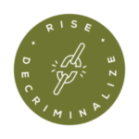
5 September 2025
First time ever European Commission is developing a dedicated Strategy to ensure support to and cooperation with civil society across all areas of European Union activities. This is specifically important in time of shrinking civic space in EU, neighboring and candidate countries.
EU Civil Society Strategy will provide a comprehensive framework for action at EU and Member State level; It will focus on strengthening meaningful engagement and providing support to all civil society actors, whilst including specific actions to address the shrinking civic space for civil society organisations and human rights defenders active in promoting and protecting EU values.
EHRA took this opportunity and contributed to its development through open public feedback to the Strategy as well as the response to the specialized questioner. Input from EHRA highlighted that the EU Civil Society Strategy needs to respond to shrinking civic space: acknowledge and coordinate efforts among communities, civil society, governments, academic institutions and professionals to address the shrinking space for civil society and communities to act in the spheres related to public health, sustainability and security in the CEECA region (EU member states, candidate and neighboring countries). Also stressed that civil society and community groups play an essential role in pushing for evidence-based and human rights-based policies and practices, and can mobilize to provide services when state services fall short of it or alienate stigmatized, discriminated-against and criminalized people.
“Over the last years an increasing number of governments in Central and Eastern Europe & Central Asia (CEECA) are adopting new laws and practices that constrain civic space (restricting rights and liberties of civil society), thereby exerting additional pressures and burden on already criminalized populations (LGBTQI+, people living with HIV, people who use drugs, sex workers). Russia’s war against Ukraine has intensified the negative human rights trends of previous years, leading to increased insecurity. It caused disruption of access to treatment and basic medical and social services, increased vulnerabilities to HIV in Ukraine, and in countries affected by the refugee crisis, and throughout the region, where economic and social upheaval and changing patterns of migration are felt.
The confluence of geopolitical turmoil, rising authoritarianism and the resulting shrinking spaces for civil society, criminalization of key populations and donors narrow view and scope in addressing HIV brought us to this boiling point where, more than ever the robust and pragmatic approaches in addressing interconnected issues of HIV, public health, gender equality, civil and human rights are needed.
The EU Civil Society Strategy need to respond to shrinking civic space: acknowledge and coordinate efforts among communities, civil society, governments, academic institutions and professionals to address the shrinking space for civil society and communities to act in the spheres related to public health, sustainability and security in the CEECA region (EU member states, candidate and neighboring countries). Civil society and community groups play an essential role in pushing for evidence-based and human rights-based policies and practices, and can mobilize to provide services when state services fall short of it or alienate stigmatized, discriminated-against and criminalized people.
We urge the EU in the Civil Society Strategy to:
1. Acknowledge the issue of shrinking space for the civil society in the CEECA region as a key challenge in public health and social care interventions and the need for action to safeguard civic spaces.
2. Ensure sustainability of low threshold, comprehensive community-led responses through flexible funding in order to adequately respond to current complex and intertwined issues in the CEECA region. In reaction to the new reality of repressions against particular communities and civil society at large (e.g. laws against so-called gay propaganda, drug propaganda, foreign agents, undesirable organizations), special attention should be paid to ensuring the safety and security of civil society and community workers and activists.
3. Acknowledging that HIV or any other disease response does not occur in a vacuum and is exacerbated by other interrelated issues, ensure that advocacy and funding approaches are focused on inclusion of a broad range of stakeholders for a coordinated, intersectional and holistic response.
4. Support communities in addressing issues of criminalization communities of people living with HIV, people using drugs, LGBTQI+, and sex workers face discrimination and criminalization of different aspects of their lives in CEECA countries.
5.Take leadership and coordinate efforts among the international community, development agencies, donor governments and private philanthropies to ensure meaningful dialogue in CEECA countries around the importance of sustainability of services, community leadership in all areas concerning their lives and livelihoods, decriminalization as a pivotal aspect of human rights and ensuring space for civil society. See analysis here”.
